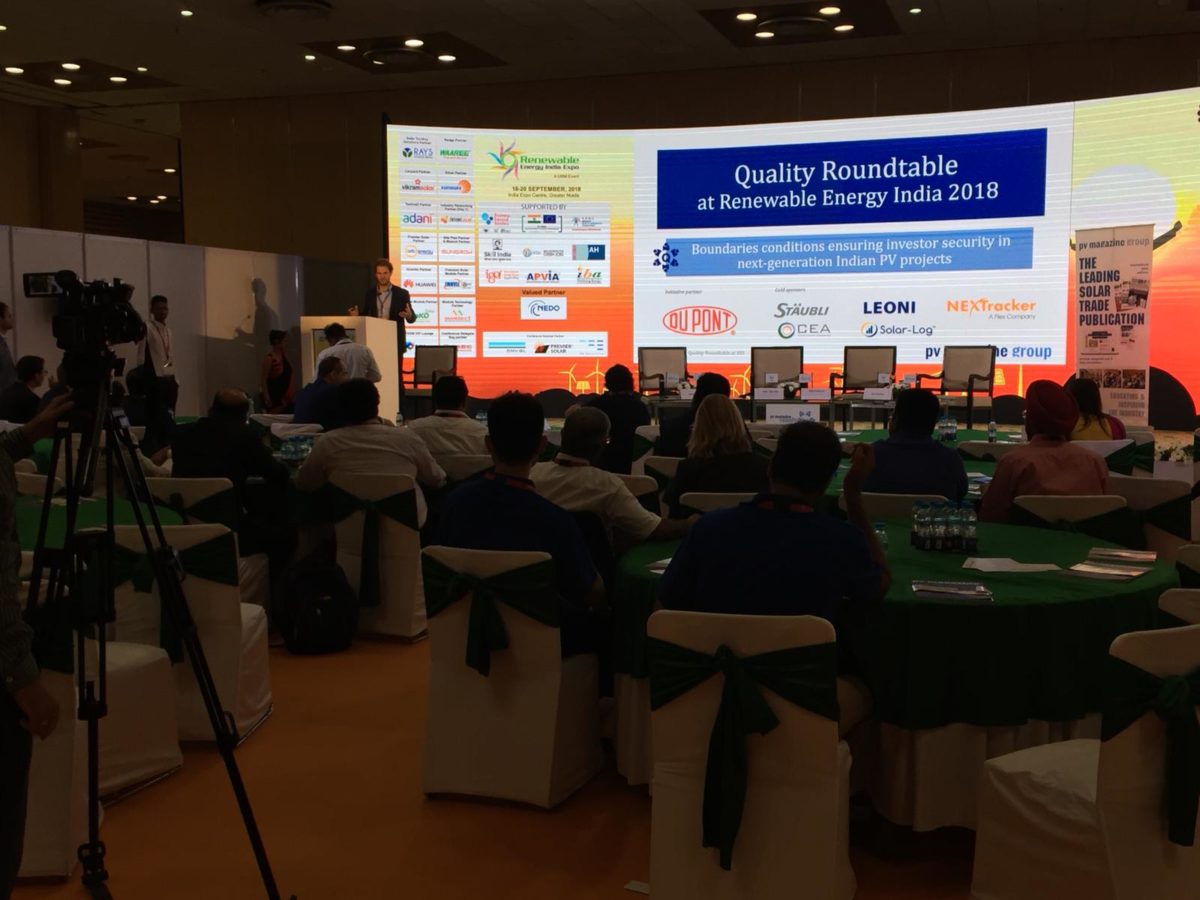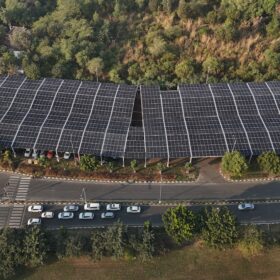As Indian PV scales up to between 7 – 8 GW of installations in 2018, large-scale tender sizes continue to increase and new applications emerge. In its 2018 Quality Roundtable India, pv magazine hosted a high-level discussion touching on the role of new India Bureau of Standards’ regulations and their likely impact on the quality of PV modules.
Vibhuti Garg, energy analyst at the Institute for Energy Economics and Financial Analysis (IEEFA) provides an overview on the current policy landscape and its impact on the Indian solar market’s future development.
She highlights that alongside the government’s plans to upscale, viability gap funding and tax breaks have worked to unleash the large-scale potential. Looking ahead, she says that currently debated proposals, such as safeguard duties or capping of tariffs could jeopordize efforts that had been made so far. As long as these measures are not realized, India sees solar PV flourishing, she says, and “that’s the momentum we need to keep.”
Jan Mastny of Leoni, highlights that the Indian market poses manufacturing challenges, as the extreme climatic conditions cause accelerated aging processes on equipment. According to him, potential issues with systems would show up considerably faster in India, than compared to any other region in the world.
He also points out, however, that if installers are adhering meticulously to manufacturers’ instructions, such risks could be averted. “The key point is to keep educated the market and the installers,” he concludes.
Read about the discussions at the Quality Roundtable and Future PV Roundtable, held last week in India at REI 2018, and at the Quality Roundtable in Taiwan at Energy Taiwan 2018. The video from our first Latin American Quality Roundtable is also available to view now.
This content is protected by copyright and may not be reused. If you want to cooperate with us and would like to reuse some of our content, please contact: editors@pv-magazine.com.









1 comment
By submitting this form you agree to pv magazine using your data for the purposes of publishing your comment.
Your personal data will only be disclosed or otherwise transmitted to third parties for the purposes of spam filtering or if this is necessary for technical maintenance of the website. Any other transfer to third parties will not take place unless this is justified on the basis of applicable data protection regulations or if pv magazine is legally obliged to do so.
You may revoke this consent at any time with effect for the future, in which case your personal data will be deleted immediately. Otherwise, your data will be deleted if pv magazine has processed your request or the purpose of data storage is fulfilled.
Further information on data privacy can be found in our Data Protection Policy.